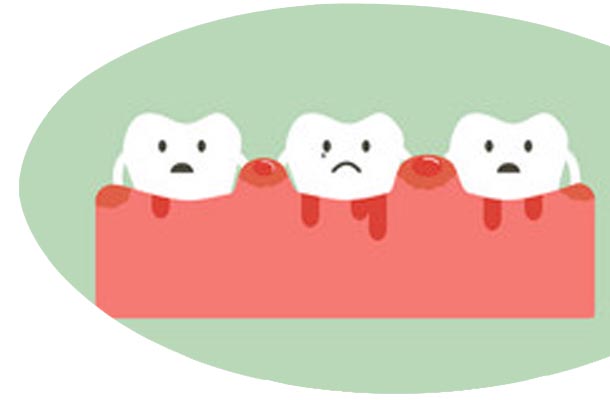Gum Disease
6 October 2017 | Admin



Gum disease is an inflammatory response caused by a bacterial plaque (biofilm) in your mouth that has not been removed by brushing your teeth.
There are three stages of gum disease.
- Gingivitis
- Periodontitis
- Advanced Periodontitis
Bacterial plaque forms on your teeth promoting gum disease if not treated.
The risk of gum disease may be reduced through establishing a good oral health regime: brush your teeth with a fluoride containing toothpaste like BioMin™ F for two minutes twice per day, and use interdental brushes or dental floss to clean between the teeth.
If not treated, plaque can harden and turn into tartar (calculus). Tartar can not be removed through conventional brushing or flossing, and requires professional scaling by a dentist or hygienist.
At an advanced stage of gum disease, treatment by a dental professional through scaling, ultra sound treatment or root planning is essential to treat the diseased periodontal pockets and overcome any infection.
The symptoms
Gum disease can be a silent condition so it is important to be aware of any of the following symptoms and contact a dental professional if you suffer from;

- Swollen, tender or red gums
- Gums bleeding when brushing or flossing
- Receding gum line
- Pains when chewing food
- Overly sensitive teeth
- Visible pus surrounding the teeth and gums
- A change in the fit of your partial dentures
- Loose teeth
- A change in the way your teeth bite
- Bad taste in the mouth or bad breath
The stages explained
Gingivitis is the first stage of gum disease, which is caused by a build-up of dental plaque at the gum line. Gingivitis results in an inflammation of the gums. You may notice swelling, some bleeding whilst brushing or flossing or redness in the gum. If Gingivitis is spotted early the gum disease can be reversed, as the bone and connective tissues may yet to have been affected.
Periodontitis is the second stage of gum disease. The supporting connective tissues and bone become irreversibly damaged. The gums now start to form a pocket below the gum line which promotes the growth of plaque. A professional periodontal treatment along with improved oral hygiene must be put in place to prevent further damage to the gums and bones. Click here to find out how to brush with BioMin™ toothpaste products.
Advanced Periodontitis is the final stage of gum disease when gum fibres and bone structure are severely damaged. Which can cause your teeth to move or loosen and in some cases, fall out. Advanced Periodontitis can affect how you eat, your bite and how you communicate. Your dentist can advise as to if your teeth need to be removed or there are any restorative options available.